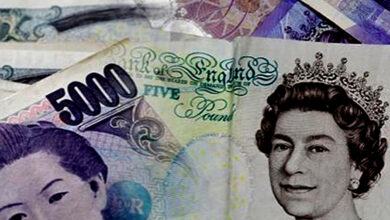Analysis: The weak yen is pulling Japan away from the radicalism of BOJ Kuroda.

TOKYO A decade ago, Governor of the Bank of Japan Haruhiko Kuroda was praised for using a “bazooka” stimulus to stop a dangerous rise in the yen.
Now that the currency is falling, he is under attack, and he has reluctantly agreed that after he leaves in April, the bank may start to loosen its policy of capping bond yields.
In line with his tendency to be dovish, Kuroda said last week at a briefing that the BOJ’s advice to keep policy rates at “current or lower levels” won’t change for about two to three years, which is well after April, when his second five-year term ends.
The remark caused the yen to drop sharply, from around 144 to near 146 to the dollar. This was the first time in 24 years that the government had to step in to help the currency.
Four days later, Kuroda took back what he said and said that the guidance won’t last that long and could change if the economy fully recovers from the pain caused by the COVID-19 pandemic.
“As far as the BOJ’s communication policy goes, it was a failure,” said Mari Iwashita, who has been watching the BOJ for a long time. “It’s hard to argue against the fact that Kuroda’s mistake dropped the yen below 145.”
Related: Khurram asks the Japanese government and businesses to look into investing in RE.
The event shows how the public’s view of years of low interest rates has changed. People are now less happy about them. It also keeps open the possibility that the BOJ will change its “dovish” message after Kuroda leaves.
A source who knows how the bank thinks said, “The world is all about inflation, and the BOJ will have a new governor.” “A change in leadership makes it possible to change the way things are done.”
On the surface, the division of labour seems clear: The government will step in to stop “too much” volatility, and the BOJ will keep interest rates very low to help the economy.
Some analysts say that the fact that the government stepped in so soon after Kuroda’s comments about weakening the yen shows how tense the relationship between the two is.
“The government wants to stop the trend of the yen getting weaker, which it sees as bad for the economy. “The policy of the BOJ goes against this goal,” said former BOJ board member Takahide Kiuchi.
“The timing of the government’s intervention makes it look like the BOJ did nothing to stop the yen from falling,” he said. “It’s a bad relationship or even a broken one.”
So far, Prime Minister Fumio Kishida’s government hasn’t put direct pressure on the BOJ. This is because they think that ending low interest rates too soon could cause a recession and make it more expensive to pay for Japan’s huge debt. A BOJ governor can’t be fired by the government because it’s against the law.
But people’s anger about the weak yen and rising prices has hurt Kishida’s popularity, and some officials have complained about Kuroda’s stubbornly dovish position.
“It wasn’t necessary for him to say that interest rates won’t go up for two to three years,” said one government official. “That’s not his decision to make to begin with.”
The domestic media is getting tougher on Kuroda for letting the yen fall, which is raising the prices of imports and raising the cost of living.
The daily Asahi Shimbun wrote on Saturday, “It’s time for the BOJ to review its guidance that favours more easing, which doesn’t make sense now that inflation has gone above its 2% goal.”
At Thursday’s briefing, when a reporter said that his stimulus was hurting the value of the yen and making people worse off, Kuroda, who is usually calm, got angry and raised his voice.
“Your comments are not based on facts,” he said, defending his stimulus as having ended deflation and created jobs.
Composition of the Changing Board
At the moment, Kuroda has the support of his board, which voted unanimously this month to keep the policy the same. But Kishida filled two openings on the board in July with people who were less radical than Kuroda. This made the board less like Kuroda.
Goushi Kataoka, a dovish board member, was replaced by Hajime Takata, a former bond strategist. Takata stressed the need to be aware of the costs of long-term easing. Another new person said that once wages start to go up, the BOJ could talk about ending its easy policy.
BOJ Deputy Governor Masayoshi Amamiya, who is a top candidate to replace Kuroda, said that the bank was “always thinking of tools” for when it ends its easy policy.
In a rare move, the BOJ’s monetary affairs division held a series of workshops with private academics to talk about Japan’s inflation outlook. Two people who know how the bank thinks said that these kinds of talks and the research the BOJ regularly puts out on monetary tools tend to lay the theoretical groundwork for a change in policy.
Since the BOJ staff doesn’t know who Kishida will choose as governor, they haven’t come up with a new plan for their new boss. But if they think that the new leader could make big changes to the current policy framework, they will write up possible scenarios for the change or ideas for how to change communication about six months before it happens.
Related: Japan prohibits the sale of chemical weapons-related products to Russia and is concerned about nuke threats
One of the sources said, “There’s room to rethink some of the dovish promises that policymakers who cared about inflation made.” Masazumi Wakatabe, who is the vice governor, will finish his term in March.
Critics are asking for a review of the BOJ’s complicated framework, which includes buying a lot of assets under quantitative and qualitative easing (QQE) and setting a negative short-term rate target and a 0% cap on bond yields under yield curve control (YCC).
Rising global yields, caused by aggressive rate hikes in many countries, have forced the BOJ to offer to buy an unlimited amount of bonds to protect the bond cap.
The fall of the yen, which is caused by the BOJ being the only central bank in the world with negative rates, may make the debate over whether or not to keep the YCC more urgent.
“Investors who think that YCC can’t last would keep trying to get rid of the yield cap. “Those who think the BOJ will be able to keep YCC can keep selling yen safely,” said former BOJ executive Shigenori Shiratsuka.
“The BOJ can only keep doing QQE and YCC for so long,” he said. “I think this is clear to BOJ officials.”





